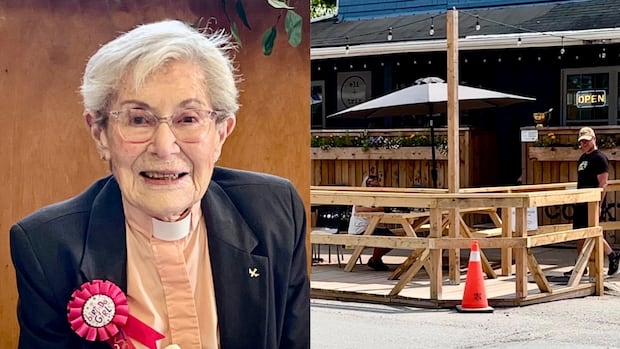Halifax police consider free training, paying cadets amid recruitment issues

Halifax police are eyeing multiple ideas to recruit more officers as the force deals with long-term absences and large numbers of possible retirements in the next few years.
Chief Dan Kinsella gave an update on staffing and recruiting to the city’s Board of Police Commissioners at its virtual meeting Wednesday.
“We’re working with others, we’re doing what everyone else is doing and we’re also trying to up our game in regards to incentives,” Kinsella said.
The force’s union recently sounded the alarm about a recent spike in officers leaving Halifax Regional Police for the RCMP, and a March study showed a more than 259 per cent rise in long-term absence hours from Jan. 1, 2011, to Dec. 13, 2022.
Many of those absences, the report noted, were due to workplace injuries, which have increased over the past 10 years.
A working group looking at how to handle the recommendations from that study is already meeting, Kinsella said. It includes CAO Cathie O’Toole, human resources and the police union.
Kinsella said that 74 officers are also eligible for retirement in 2023, but it’s likely most of those people won’t leave just yet. That number drops down to 16 next year, and 20 in 2025, with a total of 208 officers eligible for retirement between now and 2029.
HRP is planning to run a cadet class every year for the next seven years to stay ahead of those retirements, Kinsella said.
Coun. Becky Kent, the board’s chair, asked Kinsella about the idea to scrap the $10,000 tuition to take the in-house Halifax police training course. It might help attract older people with families who can’t afford to take months away from a paying job, Kent said.

Those conversations are already taking place with the CAO, Kinsella said.
“It is on the table, as is paying them a salary to start — commensurate with what other organizations are doing.”
He said the force is “looking closely” at Halifax Regional Fire and Emergency’s model of paying recruits as they go through training.
The chief also said that HRP will be coming back to the board with requests for resources to support these plans, including dedicated staff for training classes, and reflecting years of service officers have from other forces in their salaries.
Kinsella said burnout, mental-health needs and a negative perception around policing are all factors that police forces around North America are all struggling with when it comes to recruiting and retaining members.
“We’re really headed in the right direction,” Kinsella said, noting that this year’s budget approval of a psychologist and occupational therapy nurse should have an impact on officers’ mental health and help people come back to work more quickly.
Kinsella noted there was still a net gain in officers over the past three years. Since 2019, 121 members have left and 137 had been hired as of June 30.
The chief also said he’d like to see the push for a new building “activated again,” which has been on the books for years but has not seen movement.
“That’s something that we definitely need,” Kinsella said.
The main issue is the 48-year-old Gottingen Street headquarters, which Halifax police have said is cramped, has health and safety concerns, and outdated. According to a 2018 presentation to the board, a consultant determined building a new centralized headquarters would be the most affordable way to go.
Kent said a new building is key for both officers and citizens detained in holding cells, and asked the CAO how the board could best show their support.
“It’s about their capacity to do their jobs in an environment that is safe and secure,” Kent said.



